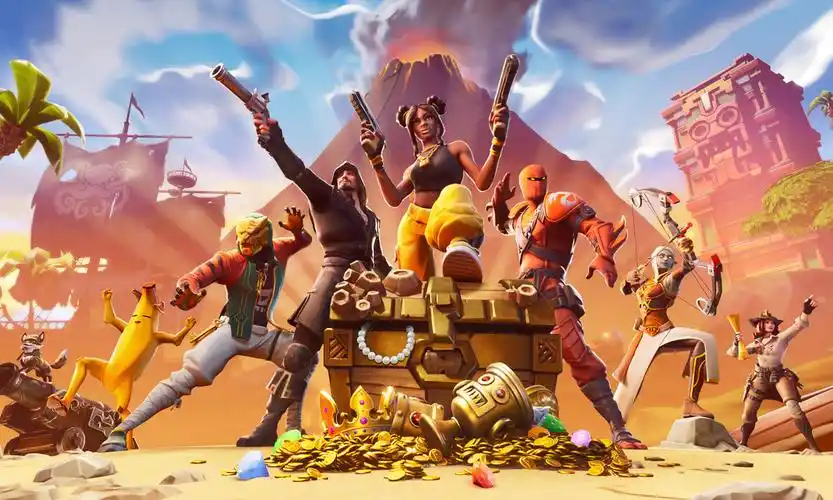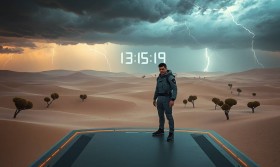Title: Beyond Observation: How the 'Society Missions' Expansion Redefines Sociological Play in 'Sociologist Simulator VR'
The original premise of Sociologist Simulator VR was a stroke of genius: instead of wielding a plasma rifle or a lightsaber, the player’s primary tool was a clipboard, and their battleground was the intricate, unspoken web of human social interaction. The base game excelled at turning qualitative research into compelling gameplay—conducting interviews, parsing through data, and formulating theories on whiteboards that floated in a virtual space. It was a brilliant deconstruction of power fantasy, replacing physical might with intellectual and empathetic insight. However, its scope was largely academic, confined to observation and analysis. The new ‘Society Missions’ Expansion shatters that confinement, launching the player from the passive role of an academic researcher into the active, high-stakes role of a sociological agent of change.
This expansion introduces a new game mode, accessible after players have mastered the core research mechanics. The fictional institution funding the player’s research, the Global Institute for Social Cohesion (GISC), now has a clandestine operational wing. Their mission: to actively intervene in broken social ecosystems and guide them toward stability using applied sociological principles. This isn't about forcing change through authority or violence; it's about becoming a master catalyst, applying precise, researched-based "social pressures" to alter a community's trajectory.
The expansion pack features three sprawling, multi-layered mission environments, each a unique sociological case study:
1. The Rust-Belt Factory Town: "Project Reforge" The setting is a once-prosperous industrial town gutted by automation and outsourcing. The social fabric is torn, characterized by high unemployment, a simmering generational rift, and the rise of isolationist and resentful ideologies. Your mission is not to bring back the factories but to rebuild social capital.
Gameplay here is a delicate dance of connection. You must first gain the trust of various factions: the disillusioned old guard at the local veterans' hall, the desperate young adults at the community college, and the small business owners clinging to survival on Main Street. Using your tools, you don't just record their sentiments; you actively create opportunities for positive discourse. This might involve strategically facilitating a town hall meeting, using your data to show common economic concerns between seemingly opposed groups, or even designing a community garden project that forces collaboration between isolated demographics. The key mechanic is your "Social Cohesion Meter," which visually represents the strengthening or weakening of communal bonds based on your interventions. Success means catalyzing a grassroots movement for a new, shared civic identity.
2. The Hyper-Gentrified Urban District: "The Equilibrium Initiative" This mission takes place in a neighborhood experiencing extreme cultural and economic displacement. Upscale condos and boutique cafes stand adjacent to long-standing, family-owned businesses and public housing complexes. The tension is palpable—a cold war between long-term residents and new arrivals, fraught with misunderstanding and economic anxiety.
Your role is that of a cultural translator and an economic mediator. The gameplay focuses on bridging social distance. You might conduct paired interviews with a third-generation shop owner and a new tech-worker resident, using your findings to identify shared values (a desire for safety, community events) rather than focusing on differences. The expansion’s new "Policy Simulator" allows you to draft and propose community initiatives to the district council. Will you propose a "Commercial Rent Stabilization" ordinance to protect small businesses, or a "Cultural Integration Grant" to fund events that celebrate the area's diverse history? Each choice has ripple effects, influencing everything from property values to the frequency of positive cross-demographic interactions you observe on the street. There is no perfect solution, only a series of trade-offs you must manage to achieve a fragile, sustainable balance.
3. The Closed Online Community: "Digital Dissent" In its most innovative leap, the expansion goes fully virtual. You are tasked with infiltrating "Aethelgard," a massively popular, ideologically closed MMORPG that has become a breeding ground for radicalization. Your avatar is your new research tool, and your mission is to de-escalate the community's toxic discourse from the inside.
This mission is a masterpiece of modern sociological simulation. You analyze chat logs and forum posts to map the community's power structure and belief systems. The gameplay involves engaging with members, not with counter-arguments, but with the Socratic method and strategic empathy—a process known as "cognitive inoculation." You might seed doubts by asking clarifying questions about their dogma or share curated information from outside their filter bubble through in-game channels. The goal is to subtly foster critical thinking and create fractures in the echo chamber, empowering more moderate voices within the community to find their footing. It’s tense, intellectually demanding, and profoundly relevant.
The ‘Society Missions’ Expansion does more than just add new content; it completes the game’s core thesis. It argues that sociology is not merely an analytical discipline but a potent, practical toolkit for healing broken worlds. It transforms the player from an observer behind a clipboard into a participatory force, making the visceral, immersive power of VR the perfect medium to explore the weight and consequence of social action. It’s no longer just about understanding society—it’s about daring to change it.



















